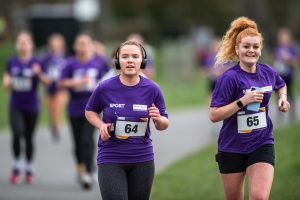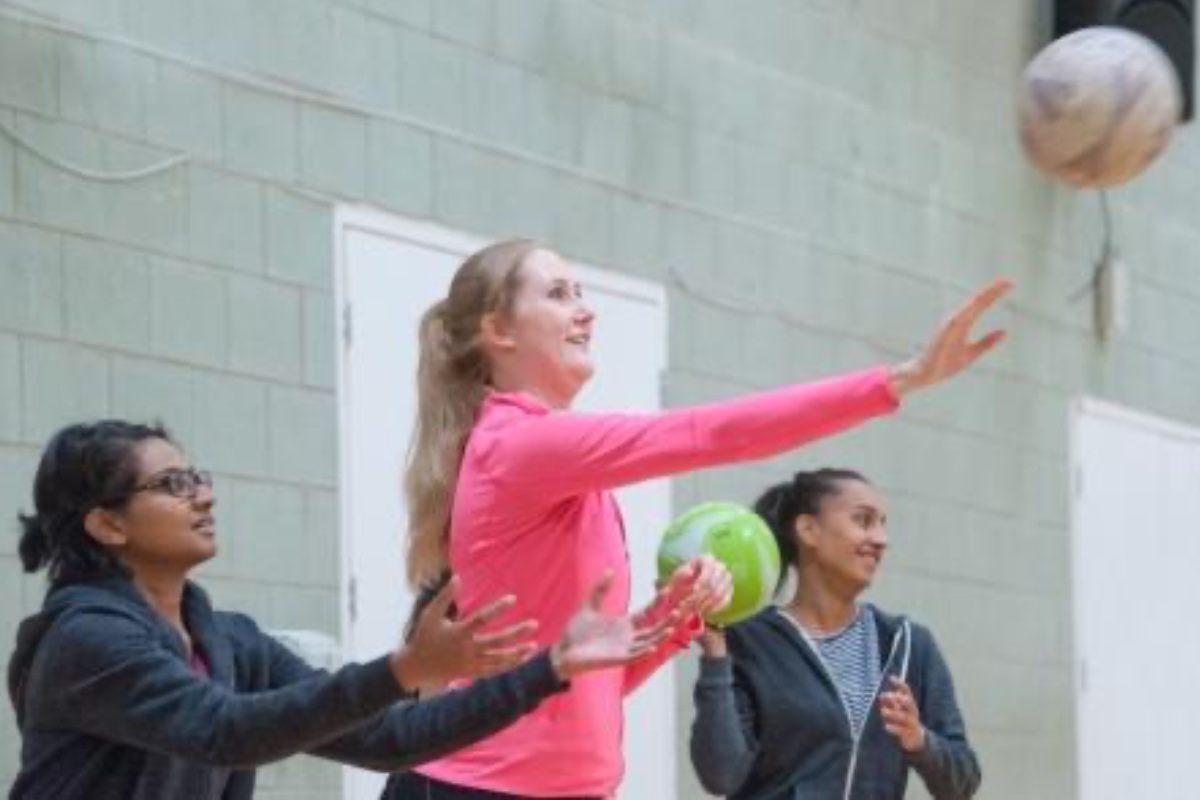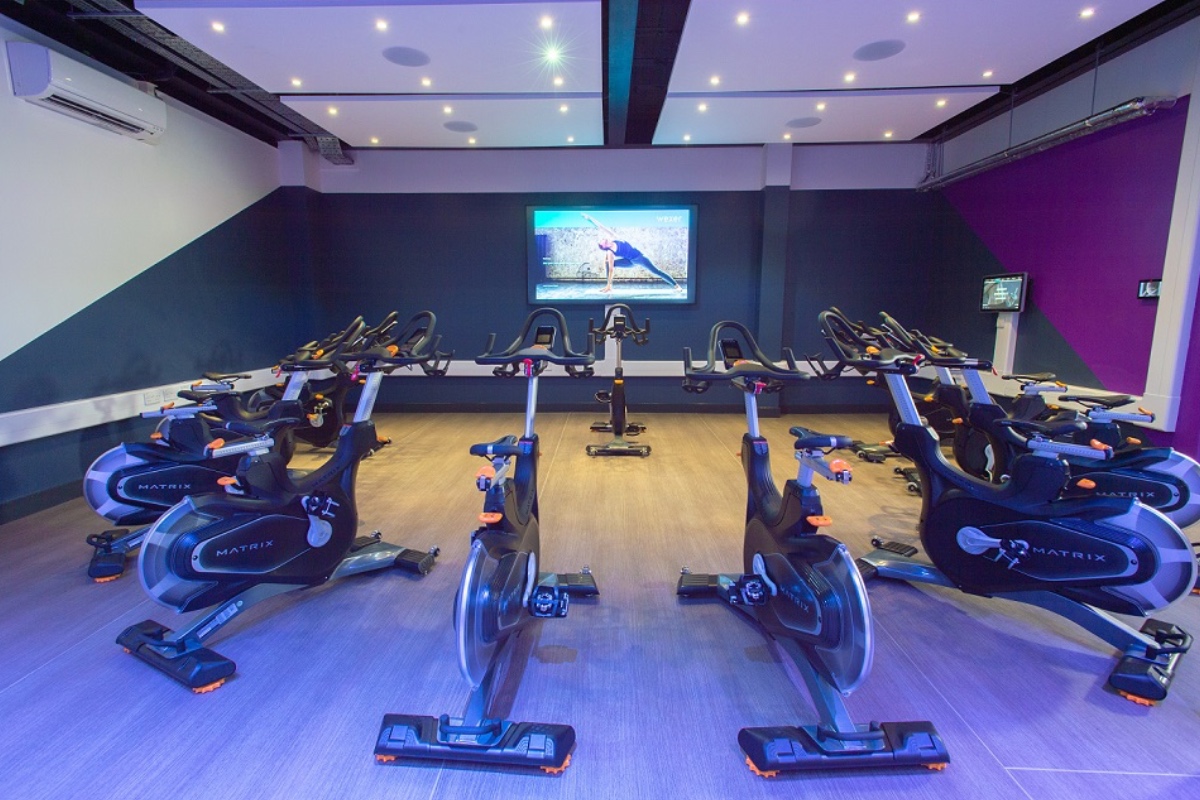Promoting fair access and safe spaces for exercise
Humanities PhD students Sophie Atherton and Abbey Atkinson reflect on their own gym experiences. They focus particularly on their experiences of weightlifting: an activity that is often assumed to be for ‘men only’, to show that everyone, including self-identified girls and women, can indeed lift those 20 kgs and more.
Gyms haven’t exactly built up a reputation for being inclusive spaces which are welcoming and safe for all (see Kerry, 2017). For many, the mere mention of them is enough to arouse feelings of dread, anxiety, and low self-esteem – the very feelings that many of us want to quash through exercise.
Sophie explains:
As was the case for many of us, using the same space to sleep, work and exercise during the lockdowns proved ineffective (see Wethal et al., 2022). In June 2021, I decided to dust off that membership and get myself to the gym. My activities of choice are aerobics, spin classes and weightlifting. For me, aerobics is my safe choice – as someone who attended regular dance classes for ten years, aerobics takes me right back to those happy, pleasant days in my childhood and teens. Spin classes and weightlifting, however, provide a different kind of thrill – the gruelling intervals of high-intensity exercise tests my mental clarity and physical ability like no other exercise.
I don’t think we can ignore the gendered elements here: copying the instructors commands and moving my body in time with the rhythm of the music is an activity that I have been socialised to want to enjoy (see Azzarito and Katzew, 2010). Blurred vision from the sweat dripping down my forehead, my face scrunched with determination and feeling as if my muscles are detaching themselves from my body, are not what is expected of me as someone who is recognised as a woman. However, I can honestly say, in all my experience of attending the gym, my subconscious thoughts about other people’s expectations of my body, my ability and the activities that I choose to do, have remained simply that: just thoughts. No one has ever turned around to stare at me and no one has ever raised their eyebrows to signal that they are questioning why I am there. And now, being a regular gym-goer, I wouldn’t care if they did. I now lift weights at least once a week and I am both physically and mentally stronger for it, gaining immense satisfaction from slowly increasing my weights as the months have gone on (see Hu et al. 2020).
I’ve learned that everyone, regardless of gender, age, or ability, can give it a go.
Sophie Atherton, PhD candidate in Sociology
Abbey tells us:
Since being very young, I have refused to conform to exercise and sport gender norms. At the age of four when my girlfriends began ballet or gymnastics, I started Karate with my older brother who had started a couple of weeks prior. Driven by sibling rivalry, I didn’t want him to be able to do something I couldn’t. The idea of ‘I can do anything boys can’ stayed with me throughout my school years: I continued to play in sporting spaces that have typically been male-dominated (see Watson et al, 2021).
During my later teens team sports had slipped away, and I began to get the gym bug. Despite feeling confident in the male- dominated spaces that I had been in previously, weight training felt different to me. Reflecting back, perhaps the gendered boundaries of space hadn’t been as obvious to me before as the males in those spaces were a similar age to me and developing their identities as I was. However, from the outside, the weight room appeared to embody the ‘gym bro’ hegemonic masculinity (see Salvatore and Marecek, 2010; Rabii, 2021). To me, it felt like an ‘alpha’ zone, chest-beating, bicep pumping, ‘lads club’.
dominated spaces that I had been in previously, weight training felt different to me. Reflecting back, perhaps the gendered boundaries of space hadn’t been as obvious to me before as the males in those spaces were a similar age to me and developing their identities as I was. However, from the outside, the weight room appeared to embody the ‘gym bro’ hegemonic masculinity (see Salvatore and Marecek, 2010; Rabii, 2021). To me, it felt like an ‘alpha’ zone, chest-beating, bicep pumping, ‘lads club’.
Nonetheless, I popped my earphones in and took the plunge. Yes, my anxiety levels were higher than usual, but I found a bench and got to work. To my surprise, once in the room, there were different types of men (and some women) – no one noticed me. In my experience, if you are in the zone no one will interrupt you. People will encourage you to push yourself and spot you if required.
The weights room can be a place free from gendered boundaries!
Abbey Atkinson, PhD candidate in Sociology
Please note the references used in this opinion piece point to related academic work for those who are interested in reading further rather than to offer in-depth critique.
Bibliography
Azzarito, L. and Katzew, A. (2010) ‘Performing Identities in Physical Education: (En)gendering Fluid Selves’, Research Quarterly for Exercise and Sport, 81(1), pp. 25–37.
Hu, S. et al. (2020) ‘Beneficial Effects of Exercise on Depression and Anxiety During the Covid-19 Pandemic: A Narrative Review’, Frontiers in Psychiatry, 11, p. 587557.
Kerry, V.J. (2017) ‘The construction of hegemonic masculinity in the Semiotic Landscape of a CrossFit “Cave”’, Visual Communication, 16(2), pp. 209–237.
Rabii, W. (2021) ‘“‘No Tough Guys Here?’: Hybrid Masculinity in a Boxing Gym”’, Journal of Contemporary Ethnography, 50(2), pp. 231–260.
Salvatore, J. and Marecek, J. (2010) ‘Gender in the Gym: Evaluation Concerns as Barriers to Women’s Weight Lifting’, Sex Roles, 63(7–8), pp. 556–567.
Watson, B. et al. (2021) ‘Physical Education, Sports, and Gender’, in Watson, B. et al., Oxford Research Encyclopedia of Education. Oxford University Press.
Wethal, U. et al. (2022) ‘Reworking boundaries in the home-as-office: boundary traffic during COVID-19 lockdown and the future of working from home’, Sustainability: Science, Practice and Policy, 18(1), pp. 325–343.
Check back throughout March to discover more This Girl Can features.



